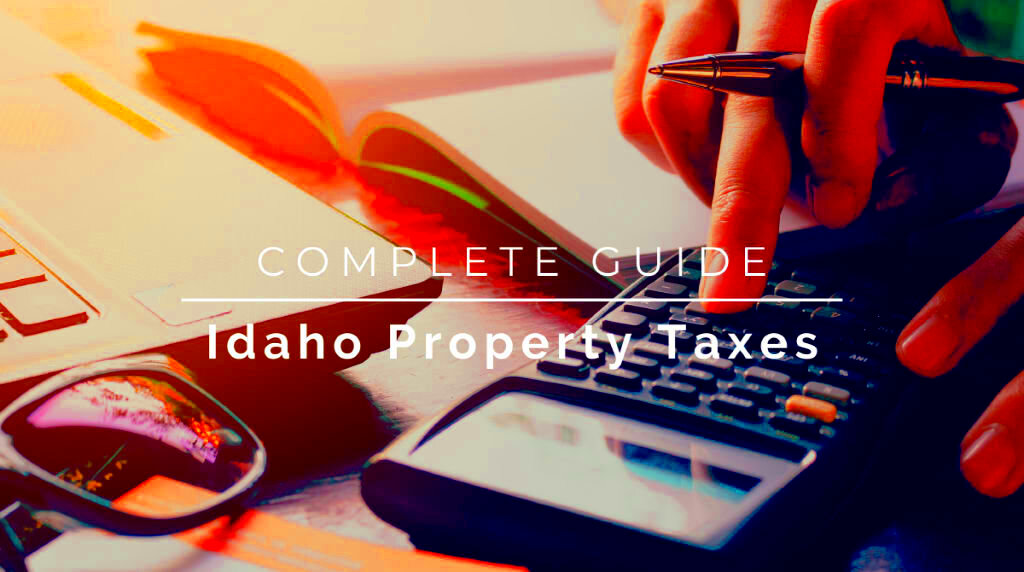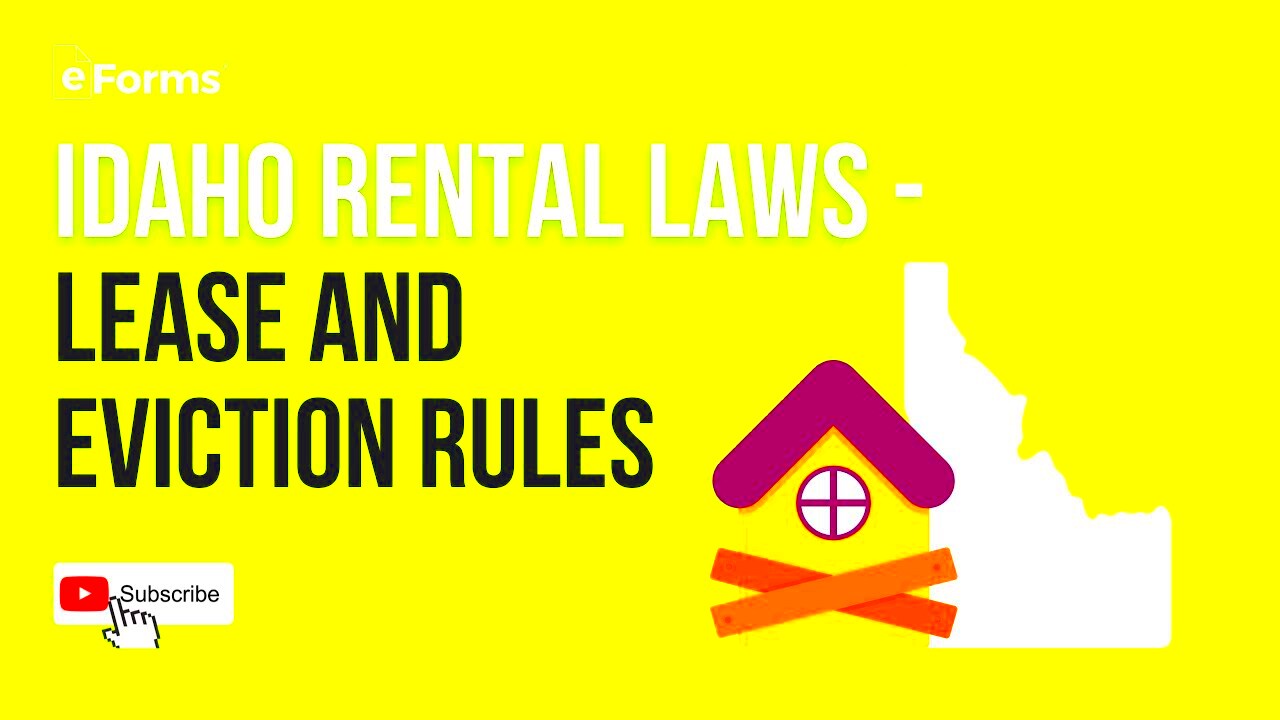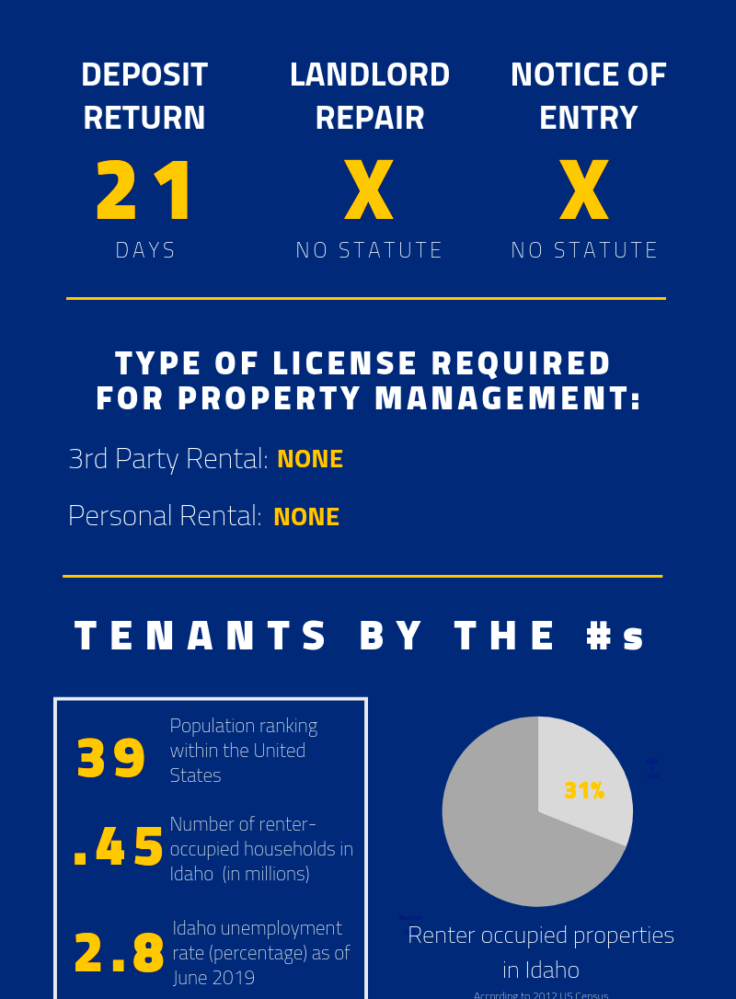What You Need to Know About Idaho Property Laws
When it comes to Idaho property laws, understanding the different kinds of property that exist in the state is important. The law classifies properties into two main categories; that is real and personal. Knowing how these are defined can help one comprehend things better within the legal framework.
Real Property includes land and anything permanently attached to it, such as buildings and trees. It can be further divided into:
- Residential Property: This includes homes and apartments, where people live.
- Commercial Property: Properties used for business purposes, like offices, stores, and warehouses.
- Agricultural Property: Land used for farming or ranching activities.
- Industrial Property: Areas designated for manufacturing and production facilities.
Personal Property, on the other hand, encompasses movable items that are not fixed to the land, such as furniture, vehicles, and equipment. Recognizing the differences between these property types is crucial, especially when it comes to legal transactions and obligations.
Key Features of Idaho Property Laws

The laws governing properties in Idaho have been meant to protect the rights of owners and promote fairness in property transactions. Below are some of these major components that you are supposed to understand:
- Title Transfer: In Idaho, property ownership is transferred through a formal process that involves recording the deed with the county clerk.
- Adverse Possession: Idaho recognizes adverse possession, allowing someone to claim ownership of land after continuous and unauthorized use for a specified period.
- Landlord-Tenant Laws: These laws outline the rights and responsibilities of both landlords and tenants, ensuring fair treatment in rental agreements.
- Property Taxes: Property owners are subject to taxes based on the assessed value of their property, which is essential to local government funding.
Being aware of such characteristics may allow you to smoothly transition through the process of property ownership and transactions in Idaho.
Property Ownership Rights in Idaho

It is imperative for all individuals selling or purchasing a piece of land in Idaho to comprehend the various rights associated with property ownership. Most importantly, these persuade the advantage and actions that can be taken on each parcel of land. The following are some critical ownership rights that must be understood:
- Right to Use: Owners have the right to use their property as they see fit, as long as it complies with zoning laws.
- Right to Rent: Property owners can rent or lease their property to others, generating income.
- Right to Sell: Owners can sell their property whenever they choose, but they must disclose any known issues or defects.
- Right to Improve: Owners can make improvements to their property, increasing its value.
- Right to Exclude: Property owners can prevent others from entering or using their property without permission.
You must consider that these rights may be limited by local regulations, planning laws, and any present agreements or limitations.
To make sensible decisions on Idaho’s property market, we need to comprehend the kinds of properties available, the basic aspects of property laws, as well as our ownership rights.
Buying and Selling Property in Idaho

The entire property selling or buying process in Idaho is usually complicated to most individuals but it need not be so as it will become simpler if one understands how the system works, and knowing the expectations will effectively guide both first time buyers and experienced sellers in the real estate market.
Usually, there are a number of important stages included in this procedure:
- Getting Pre-Approved for a Loan: If you’re buying, it’s wise to get pre-approved for a mortgage. This shows sellers that you’re a serious buyer.
- Finding a Real Estate Agent: A knowledgeable agent can help you find the right property or assist in selling your current one.
- Making an Offer: Once you find a property, you’ll make an offer. This may involve some negotiation, so be prepared to discuss terms.
- Conducting Inspections: Always have a property inspected before finalizing the sale. This can reveal any hidden issues.
- Closing the Deal: The final step involves signing the paperwork, transferring the title, and officially completing the transaction.
In order to entice potential buyers, sellers must make sure they get rid of things and fix up their homes so that they look appealing for sale. It is important to note that in Idaho, sellers need understand how prices have changed if they want their prices to be competitive.
Understanding Property Taxes in Idaho

In Idaho, property taxes are an important factor for property owners to take into account. Schools, roads and public safety are some of the essential services that these taxes provide funding for. Thus it becomes imperative to know how they work in order to plan financially and allocate budgets adequately.
Remember these important things:
- Assessment Process: Property taxes in Idaho are based on the assessed value of your property, determined by local assessors. This value is typically reassessed every five years.
- Tax Rates: Each county sets its own tax rate, which can vary significantly. It’s important to check the local rates for accurate calculations.
- Exemptions: Certain exemptions may apply, such as for veterans or those over 65. Understanding these can reduce your tax burden.
- Payment Schedule: Property taxes are usually due in December, with the option to pay in installments.
Managing your finances better and avoiding surprises can be achieved by being proactive in understanding your property tax obligations.
Land Use and Zoning Regulations in Idaho
Leeway in land occupation and zoning regulations serves as a crucial factor in identifying the intended use of a parcel of land in Idaho. In addition, these regulations are essential because they guarantee that any development taking place on a certain piece of land will have positive impacts on both the society and the ecosystem associated with it.
This is all you have to comprehend:
- Zoning Laws: Idaho has various zoning classifications that dictate how land can be used, such as residential, commercial, and agricultural. Knowing your property’s zoning is essential before making any plans for development or construction.
- Permitting Process: Before making changes to your property, you may need to obtain permits from local authorities. This could include building permits, special use permits, or variances.
- Land Use Planning: Local governments in Idaho engage in land use planning to ensure sustainable development. It’s helpful to stay informed about these plans, as they can affect your property’s value and potential use.
- Environmental Regulations: Certain areas may be subject to environmental protections, such as wetlands or flood zones, which can impact how you use the land.
Knowing these rules is not only useful for following them but also helps you to take educated choices concerning property investments in the state of Idaho.
Importance of Title Insurance in Idaho Property Transactions
Title insurance is things that has big importance in real estate transactions in Idaho. Individuals rarely contemplate this but it’s an important protection for both lenders and buyers. Simply put, title insurance protects against any possible legal problems concerning the ownership of properties ensuring that the buyer gets a clean title.
The Title Insurance Importance contains some few points:
- Protection Against Liens: Title insurance can protect you from undiscovered liens on the property. If someone has a claim against the property, such as unpaid taxes or contractor fees, title insurance can cover these costs.
- Defending Your Title: If someone challenges your ownership, title insurance provides legal defense against such claims, giving you peace of mind.
- Errors in Public Records: Mistakes in property records can lead to ownership disputes. Title insurance helps protect against these errors.
- One-Time Premium: Unlike other insurance policies, title insurance requires only a one-time premium at closing. This means long-term protection without ongoing costs.
In Idaho, it is commonly accepted that title insurance is an essential part of every real estate transaction. This approach will ensure that you are well protected should anything go wrong later on in life, thus making it a worthwhile investment.
Frequently Asked Questions About Idaho Property Laws
Most individuals have similar questions about property laws in Idaho. The following are some frequently asked questions that aim at clarifying certain issues of concern:
- What is the process for transferring property in Idaho?
The transfer of property typically involves signing a deed, which must be recorded with the county clerk’s office to be effective. - Are there property disclosures required when selling a home?
Yes, sellers must disclose known issues with the property, including structural problems or environmental hazards. - What are the property tax rates in Idaho?
Property tax rates vary by county and are based on the assessed value of the property. - How do I appeal my property tax assessment?
Property owners can appeal assessments through their local county assessor’s office, usually within a specified time frame. - What are the tenant’s rights in Idaho?
Tenants have rights outlined in Idaho’s landlord-tenant laws, which cover issues like lease agreements, security deposits, and eviction processes.
When buying, selling, or renting, you can depend on these FAQs to better understand Idaho property laws.
Conclusion on Idaho Property Laws
Essential for any real estate participant in Idaho—original buyer, seller, or tenant—is understanding property laws. Each aspect of property transactions has its significance including recognizing various property types and ownership rights, grasping title insurance importance and navigating through property taxes.
If you will have knowledge regarding these rules, you will be able to safeguard your capital and have adequate information for decision making. Some of the important points are:
- Title insurance is crucial for protecting against unforeseen legal issues.
- Awareness of property taxes and exemptions can help in financial planning.
- Understanding land use and zoning regulations is vital for development and compliance.
In conclusion, a good understanding of Idaho property laws will give you confidence and peace of mind when tackling the complex world of real estate. If in doubt, it is advisable to seek legal assistance for a more personalized advice.


